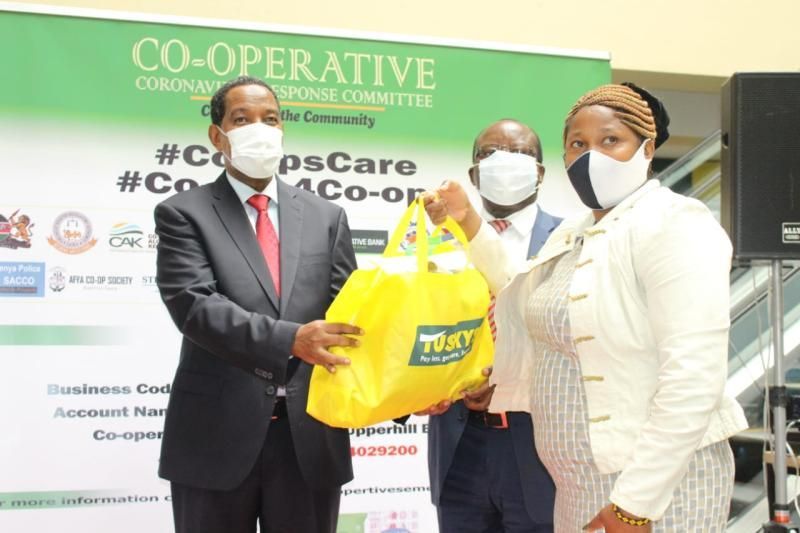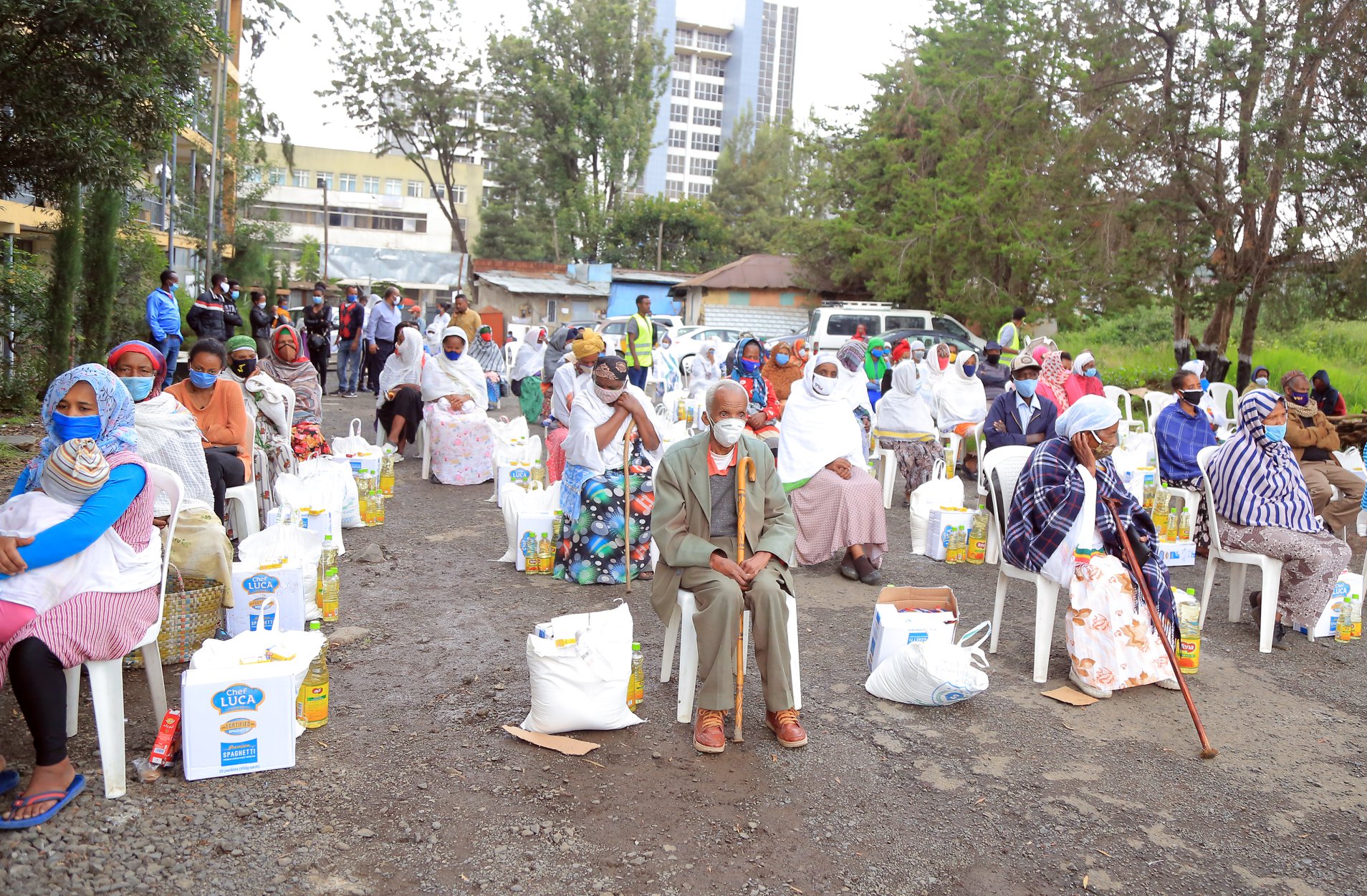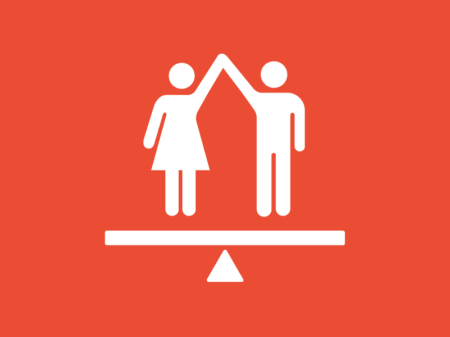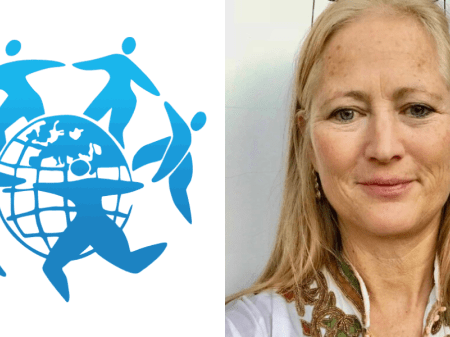
While it is too early to predict the full impact of COVID-19 on the African continent, a report by the United Nations Conference on Trade and Development (UNCTAD) estimates that African economies will witness a 1.4% drop in GDP, with smaller economies facing contraction of up to 7.8%. Despite this gloomy outlook, case studies conducted in Ethiopia, Lesotho and Kenya, show that cooperatives have significantly helped their communities cope with COVID-19 embodying several Cooperative Principles.
The following examples show how cooperatives in these countries have been helping their communities to cope with the pandemic, demonstrating core cooperative values of solidarity, social responsibility and caring for others.
Ethiopia
The pandemic has affected the strong economic growth in Ethiopia, which had been registering a two-digit economic growth over the past few years.
Despite the downturn, the Federal Cooperative Agency (FCA) states that 2,042 primary cooperatives, unions and federations in Ethiopia have donated money, food items and sanitary products worth around 50 million Ethiopian Birr to the public sector bodies and directly to those most vulnerable.

Credit cooperative Awach SACCOS donated 330,000 Ethiopian birr to the local council to support COVID-19 relief efforts. This was done with the help of its 27,000 members and cooperative employees, who contributed 5% of their monthly salary.
To further support its local communities, the Awach credit union bought one-month’s worth of groceries for 330 households in Addis Abada who were affected by the COVID-19 pandemic.
“The support made the families feel very happy - the elderly thanked and blessed members, the staff and the management team of Awach SACCOS for being there in time of need,” said Yetnayet Teklewold, international cooperative development, relations, and research manager at Awach SACCOS.
As cooperatives play an important role in the government’s strategy to enhance crop production, 800 million birr in loans have been allocated to agricultural cooperatives to help them intensify productivity.
Self-help groups like 'Equib' and 'Idir' have been an important pillar of Ethiopian society for centuries. These groups still exist today alongside modern producer, consumer, housing and credit cooperatives.
“In this era of Covid-19 pandemic and other natural calamities, our cooperatives, with their values and principles of solidarity, cooperation, support and social responsibility, are demonstrating their people-centred approach by providing remarkable services in spite of the socio-economic crisis affecting the country,” said Ayalsew Workneh, FCA public relations director.
Lesotho
In this landlocked country surrounded by the Republic of South Africa with a population of 2.1million people, the impact of COVID-19 on cooperatives differed by sector.
While some services and industrial cooperatives had to cease operations, the agricultural sector benefited from an increase in demand for food products, particularly as the imports from neighbouring countries were limited.
“People started to see the need of improving the local food production, an opportunity agricultural cooperatives are taking,” said Maphamoli Elizabeth Lekoetje, Commissioner for Cooperatives Development at the Ministry of Small Business development, Cooperatives and Marketing.
She adds that financial cooperatives in particular were resilient during the COVID-19 crisis, with some even choosing to venture into the health sector.
“Village health workers are now forming savings and credit cooperatives, seven of these have already been registered,” she said.
Kenya
According to the Kenya National Bureau of Statistics (KNBS), between March and July of this year, at least 1.8 million people in Kenya have lost their jobs or have been put on indefinite unpaid leave as the pandemic morphs into a major jobs crisis. Cooperatives were also affected, with some struggling to continue operating.
To support them, the State Department of Cooperatives (SDC) established the Kenya Cooperative Coronavirus Response Committee (CCRC), which is made up of ten key stakeholder organisations, including national co-operative apex bodies.
One of the CCRC’s initiatives has been distributing “Co-op Kits” (including cooking oil, rice, food stuff and PPE) to 3,500 households through cooperative societies. The cooperatives are distributing the kits within their communities to members and non-members alike. The kits themselves are assembled at stores throughout the country thus also stimulating local businesses.
CCRC aims to mobilise Kshs. 1 Billion to support 500,000 households. Kenya’s cooperative sector boasts over 14 million members across 24,000 cooperatives and accounts for 35% of national savings.
Individual cooperatives have also been making their own contributions to tackling COVID-19. Majority women-owned Lelchego Dairy Cooperative Society, which has 6,449 members, is leading a campaign to help mitigate the pandemic by informing children on COVID-19 symptoms, proper hand washing techniques, and the importance of social distancing. The women have also developed a communication platform to disseminate information from the Ministry of Health to their members and those from the Nandi County Dairy Cooperative Union.
Surveys conducted in May by the US Agency for International Development’s CLEAR programme involving 24 Kenyan cooperatives found that “Kenyan Cooperative businesses and their members have felt the effects of COVID-19 yet are actively working to meet the needs of their members and communities to keep people healthy and financially stable”. CLEAR is also a member of CCRC.
On average cooperatives in Kenya reported a 30% decrease in revenues with some claimed losses up to 60%. The majority (70%) stated that social distancing restrictions had limited their operations and over 30% of cooperative businesses sites closed markets or points of sale as a top challenge.
Photo: Kenyan co-ops have been distributing “Co-op Kits”




